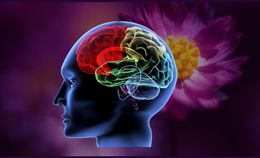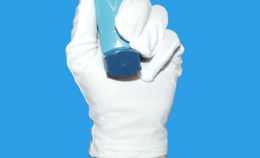What is Addiction?
Addiction is a disease of mind, body, community, and spirit. People suffering from addiction are stuck in a cycle of harmful behavior that they struggle to stop or moderate. This often involves using drugs like methamphetamines, cocaine, Adderall, heroin, benzodiazepines, prescription opioids, alcohol or cigarettes - a type of addiction often broadly referred to as a substance addiction, substance abuse, alcoholism, or a substance use disorder. Other common areas of addiction include relationships, sex, pornography, gambling, spending, eating, sugar and work addiction.
One addiction may look different from another, but the basic pattern is the same. Addiction begins in the mind, as a means of responding to uncomfortable thoughts and feelings. The behaviors - taking drugs, working too much or gambling away your retirement savings, for example - are not so much the causes of addiction as symptoms of underlying suffering.
Why do people get addicted? Usually, because the addiction helps them to feel better. People who struggle with addiction often don't feel okay or comfortable in their own skin. This discomfort may be influenced by trauma, painful life circumstances, broken relationships or a psychological disorder - or it may have no clear origin.
It is important to note that addictive behavior usually has short-term benefits. Whatever a person is addicted to gives them relief from their discomfort. However, the relief is only temporary. This means that the person has to frequently repeat the behavior in order to sustain that feeling of relief.
If they stop satisfying their addiction, they go back to feeling uncomfortable. That feeling often gets more intense the longer they stay stopped. This is part of what makes an addiction so hard to stop, or even moderate. If they are addicted to drugs or alcohol, they will also experience painful physical withdrawal symptoms that can last for months.
Addiction, especially to drugs and alcohol, is often progressive. That means it gets worse the longer someone is caught up in it. However, this is not always the case, and some people who do maintain a consistent rather than escalating level of drug use or other harmful behavior may still be addicted.
Treating addiction usually involves working to heal an addicted person on a variety of levels, including improving physical, mental and emotional health, developing more supportive relationships, and encouraging them to use their experience with addiction to help others. The goal of treatment may be to stop the addiction completely, as is common with drugs, alcohol, cigarettes or gambling, or to moderate and learn to express the behavior in healthier ways, such as with food or sex.
What's the difference between drug addiction and physical dependency?
If someone needs to keep taking a drug to avoid painful withdrawal symptoms, they may be described as physically dependent. This occurs frequently with opioid pain medications or anti-anxiety benzodiazepines, especially if someone has been taking these drugs for an extended period of time. When they stop taking them, they may experience severe physical discomfort that lasts for weeks or months.
Most people who are addicted to drugs are also physically dependent on them. However, not everyone who is physically dependent is also addicted. If you are only physically dependent on a drug, you may have a tough time getting off of it, but it will probably be easy to stay off of it.
By contrast, someone who is addicted may indeed use drugs because they are scared of withdrawals. However, they will also likely feel overwhelming urges to use even after the pains of withdrawals have faded. In other words, addiction causes ongoing cravings that physical dependency doesn't.
What are the symptoms of addiction?
Addiction exists on a spectrum. At one end are people who are remarkably calm, even-keeled and rarely overindulge in much of anything. At the other end are people who lose their jobs, homes, and families because they just can't stop doing things like using drugs, gambling or chasing sex. Most people fall somewhere in between these two extremes.
When does a behavior become a potential addiction? When it becomes consistent and harmful: regularly abusing drugs and alcohol, binging on pornography, spending outside your means, gambling, eating sugary foods, overworking or whatever else. Acting this way occasionally is not usually a sign of addiction - most people do from time to time. However, doing so frequently is a red flag.
Because there are so many different forms of addiction - so many different things you can be addicted to - there are a wide range of other symptoms. Drug addiction looks superficially different from sex addiction, for example. However, beneath any outward differences are key similarities. Some common symptoms or signs of an addiction may include:
- The pattern of behavior is harmful but you keep repeating it.
- The behavior makes you temporarily feel better.
- You think about the behavior all the time and can't wait to do it again.
- The behavior feels more important than your work, school, or relationships with loved ones and friends.
- You keep engaging in the behavior even in the face of negative consequences.
- You try to stop or moderate, but cannot.
- If you don't keep doing it, you experience cravings.
- You may feel the need to hide what you're doing from others.
- You may engage in related harmful behaviors, like stealing to support a drug habit or risky, unsafe sex.
You don't need to be experiencing all of these symptoms in order to have an addiction. However, most people who struggle with addiction will probably relate to some or most of them.
Am I suffering from an addiction?
If you are worried that you or a loved one may be suffering from addiction, ask yourself:
"Am I doing something that temporarily makes me feel better but also causes me harm that I can't stop or moderate even if I want to"
If your answer is yes, that's a good indication that you may be dealing with an addiction. If you're not sure, one good test is to try to stop whatever it is that you are worried you might be addicted to. See how long you can go without it, and how it feels when you can't scratch that itch
If you can stop or moderate over an extended period of time without it being a big deal, you're probably not addicted. On the other hand, if you struggle to avoid the potentially addictive behavior, turn to another harmful behavior to replace it when you stop, or just feel deeply uncomfortable without your behavior, you may well be dealing with an addiction.
Another good question to ask yourself: do I need this harmful behavior in order to feel okay? If yes, that's another sign that you may be addicted.
What are the causes of addiction?
Addiction is a bio-psycho-social-spiritual disease. This means that there usually isn't just one cause of addiction, but several. Factors that can contribute to addiction include the brain, genetics, mental illness, emotional trauma or pain, family dynamics, and existential or spiritual suffering.
Successful addiction treatment often involves helping the person struggling with addiction to heal in mind and body, strengthen their supportive relationships, and begin to feel more at peace with themselves and others.
Physical
The structure of the brain plays a role causing addiction. When you take a drug or engage in another addictive behavior, the pleasure centers of your brain light up. Your body activates what is called the dopamine reward system or pathway: it begins to produce higher levels of dopamine, a neurochemical that makes you feel good. This is what causes the rush or high or other feelings of pleasure that result from addictive behaviors.
However, those feelings don't last, so you have to repeat the behavior in order to stimulate the dopamine reward system again. Typically, the more you do so, the less dopamine your brain has to work with. This means that you have to intensify the behavior to get your brain to release enough dopamine to produce a satisfying response. This is one reason addiction can become more intense with time and affect the health of the brain.
Dopamine also plays a role in why some people are more likely to develop an addiction than others. In the 1990s, Dr. Kenneth Blum coined the term "Reward Deficiency Syndrome" to describe the fact that people who struggle with addiction tend to have brains that naturally produce less dopamine than normal. This means that some people are walking around with a lower baseline of satisfaction - they regularly don't feel as good as other people do because their brains are producing less dopamine.
People with the reward deficiency syndrome are much more likely to enjoy drugs or other patterns of behavior that spike the levels of dopamine in their brains. For them, the experience is much more intense and much more rewarding than it would be for someone with higher levels of natural dopamine production. Critically, the addictive behavior may help people with reward deficiency syndrome to feel normal for the first time in their lives.
Genetic
There is a major genetic component to addiction. Studies have shown that roughly 50 percent of your risk for developing an addiction is hereditary. If you have a parent or grandparent who struggled with addiction, you are much more likely to struggle with addiction yourself. Specific genes also influence the brain in ways that affect addiction, including dopamine production and predisposition to reward deficiency syndrome.
It's always helpful to keep in mind that genes aren't necessarily life sentences. Epigenetics, the study of gene expression, shows us that many lifestyle factors that we can choose to cultivate: healthy diet, sleep, exercise, loving relationships, spiritual practice, community, a sense of purpose - may influence whether genes are switched on or off.
Emotional
Addictive behavior can often be driven by emotional pain. This can include major events like a trauma, cumulative smaller hurts, or chronic stress. The addiction can serve as a way to temporarily mask or relieve emotional pain or stress. This can lead people who are caught in an addiction to become increasingly bottled up emotionally, as they suppress their painful emotions through their addiction instead of acknowledging, processing or expressing them.
Relationships
Addiction has a genetic component and can be passed down through families. However, the actual dynamics within a person' s family - how the family members relate to each other - can also play a role in developing an addiction. People that grow up in conflict-ridden or damaged families may be more likely to enjoy the relief that drugs, alcohol or other addictive behaviors can offer, and may be less likely to have learned other, healthier coping mechanisms growing up. Likewise, other difficult relationships within a person's life can also make turning to an addictive behavior more attractive.
Spirituality
Some addiction recovery groups like Alcoholics Anonymous or Refuge Recovery describe addiction as being rooted in a spiritual malady or disconnect. This means that at its core, addiction is the result of feeling disconnected from your true self and your place in the universe. That disconnect causes a deep sense of existential pain, from which addictive behaviors offer a reprieve.
How to treat addiction
Addiction treatment is best approached holistically. Because there are many factors that can help cause addiction, a successful treatment plan usually addresses many or all of those factors. Addiction treatment is often referred to as recovery and is generally considered to be a long-term or even lifelong process. Recovery also may involve periods of relapse.
Recovering from some addictions may require total abstinence from the addictive behavior. This is often the case with substance addictions like drugs, alcohol, and cigarettes, as well as gambling. With addictions to food, relationships, spending money, work or sex, however, treatment involves learning to channel that behavior in a healthier way, as these are all essential parts of life for most people.
Assessment
If you are asking yourself whether you or a loved one has an addiction, exploring the symptoms and questions discussed in the Symptoms section is a good place to start. However, a psychologist, therapist, counselor or doctor can also help assess you for signs of addiction, share their impressions with you, and offer suggestions for treatment. Similarly, going to a meeting of an addiction recovery group can also help you decide?listen to the other people in the meeting share their own stories of addiction, and see if you relate.
Lifestyle
Lifestyle changes play a major role in getting free from addiction. It can often be helpful to find new, healthier behaviors to replace existing addictive behaviors. These can include exercise like running, swimming, sports or yoga; meditation or tai chi; and activities to help others like volunteering. All of these activities make you feel better, but don't carry the negative side effects that addictive behaviors do.
Social support also plays a huge role. If your life is full of people who don't treat you well, don't support your recovery, or are themselves caught up in addictive behavior, that can make it very difficult for you to stop. Doing your best to remove yourself from those kinds of situations and relationships, and finding friends who support your efforts to recover from addiction is critical. Recovery groups can also be a great source of social support.
Nutrition
What you put in your body on a regular basis has a significant impact on your health and wellness, and can even play a role in recovering from addiction.
Diet
Diet can play a role in treating addiction. Certain foods like caffeine, sugar, corn syrup and white flour actually stimulate the dopamine reward system in your brain the same way that drugs, alcohol and other addictive behaviors do. This means that eating those foods, especially early in your recovery from addiction, can actually cause cravings for your addiction. Experts suggest prioritizing your nutrition and avoiding foods that contain caffeine, sugar and white flour as well as other foods that spike your blood sugar levels until you feel more stable in your recovery.
Conversely, a diet full of fresh, healthy foods including lots of greens, lean proteins and good fats like olive and coconut oil can help nurture and rebuild your body. This can be especially important for people who have damaged their health through drugs, alcohol or overeating.
Supplements
Certain supplements can be useful for treating addiction. They can help rebuild your brain and body, and reduce cravings. Potentially useful supplements include:
- Omega-3s
- B-complex vitamins
- Vitamin-C
- N-acetylcysteine (NAC)
- Vitamin D
- Magnesium
- Zinc
A doctor or nutritionist who has experience working with addiction can help guide you to the right diet plan and supplements.
Healing modalities: which health professionals can help?
Many health professionals offer services that can help you with addiction. Specific examples include:
Therapy or counseling
A social worker, therapist, counselor or psychologist can be a great resource for someone struggling with addiction. Many mental health professionals specialize in working with addiction, and they can help you understand what you are dealing with, offer guidance on what to do about it, and help you work with underlying mental and emotional health issues that may be driving your addictive behavior. If you want help with your addiction, talking to a therapist is often a great first step.
Medical or psychiatric help
If you have damaged your health significantly over the course of your addiction, further medical help from a doctor may be important. The doctor can screen you for diseases that may be connected to your addiction or risky behaviors, and help create a treatment plan. Some people also work with psychiatrists to help treat mental and emotional health issues with medication. People struggling with opioid addiction may also benefit from medication-assisted treatment, which replaces heroin or prescription painkillers with opioids that do not carry a risk of overdose.
Inpatient treatment
Someone really struggling with an addiction may benefit from an inpatient treatment program. During a treatment program, which typically lasts from one to three months, the person will be given medical support to detox off of any drugs they are taking, or helped to otherwise abstain from their addictive behaviors. They will also receive education, individual and group therapy, peer support, and learn new techniques or approaches to help them develop healthier behaviors. Inpatient treatment is sometimes covered by insurance.
Outpatient treatment
People in outpatient treatment programs continue to live at home as usual. However, they spend at least several hours a day in the treatment program, which is otherwise similar to inpatient treatment. If they are in treatment for drug abuse, they also typically receive drug-testing.
Other healing modalities like acupuncture, chiropractic, massage or flotation therapy can also be useful for someone struggling with addiction, as they can help you relax and feel better in your body. Similarly, a nutritionist can help you come up with a healthier eating plan to support your recovery.
Recovery groups
Many people struggling with addiction find that they benefit from attending a recovery group. Recovery groups are informal and peer-led. That means that they are run by their members, not professionals, and are open to anyone who wants help, free of charge. Recovery groups can help you understand that you are not alone, and show you how to move forward.
Twelve-step groups like Alcoholics Anonymous or Narcotics Anonymous are the most common, and offer a spiritual, community-based approach to treating addiction. There are twelve-step groups focused on just about every addiction imaginable, including cigarettes, sex, food, gambling, and spending.
Other recovery groups ranging from the Buddhist Refuge Recovery to the secular and cognitive-behavioral therapy-inspired SMART Recovery and LifeRing also offer community-centered support and guidance for people struggling with addictions.
References:
Everything you think you know about addiction is wrong
Johann Hari | TEDGlobalLondon, 2015
Journalist Johann Hari discusses deeply personal, surprising, and hopeful ways of thinking about addiction.
The Substance Abuse and Mental Health Services Administration National Hotline.
Alcoholics Anonymous: twelve-step recovery from alcohol or drug addiction.
Narcotics Anonymous: twelve-step recovery from drug or alcohol addiction.
Refuge Recovery: a Buddhist-inspired recovery program for any kind of addiction.
LifeRing Secular Recovery secular recovery program for people struggling with drugs and alcohol.
SMART Recovery: a secular approach to recovery from any kind of addiction.
From Sober Nation: a list of different twelve-step programs covering dozens of addictions (including non-drug addictions), and a list of non-twelve step recovery groups.





















